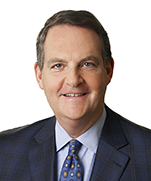High Paying Jobs Are More Likely To Be Selected If This Rule is Finalized
On October 29, 2020, the Trump Administration proposed a new rule setting forth significant changes to the H-1B cap subject lottery process. It will not go into effect until a final rule is published/issued in the Federal Register.
The current system is based on a random, computerized lottery selection of H-1B registrations by the US Citizenship and Immigration Service (USCIS). The proposed new selection process prioritizes the highest paying jobs and the Department of Labor’s (DOL) recently changed wage level system.
The proposed rule will undergo a 30-day public comment period, from November 2, 2020 to December 2, 2020, and a 60-day public comment period for the accompanying revised Form I-129.
Key provisions of the proposed rule include:
- Allocation of H-1B quota numbers based on salary levels, giving priority to those employers offering the highest salaries for the respective occupation and geographic area of employment according to the DOL’s Occupational Employment Statistics (OES) prevailing wage levels, Standard Occupational Classification (SOC) codes, and area(s) of intended employment.
- If more registrations are received during the annual initial registration period than necessary to reach the applicable numerical allocation, the USCIS will allocate H-1B quota numbers based on the highest OES prevailing wage level that the offered wage equals or exceeds for the relevant SOC code/in the area of intended employment, starting with level IV. The USCIS would then continue to select cases in descending order from OES wage levels III, II and I.
- The USCIS will keep the differentiation between the “regular” cap and the “advance degree” cap selection, with the first allocation distributing H-1B visa petitions under the 65,000 “regular” cap and a second allocation distributing H-1B visa petitions under the 20,000 “advance degree” cap.
- For offered wages that are based on an independent, alternative wage survey and are lower than the OES wage level 1, the USCIS would rank the registration in the same category as the OES wage level 1.
- If the job will be in multiple locations, the USCIS would rank and select the registration according to the lowest corresponding OES wage level that the offered wage will equal or exceed.
- Where there is no available OES prevailing wage information for the offered position, USCIS would rank and select the registration based on the OES wage level that corresponds to the requirements of the offered position.
Additionally, the electronic registration form (and the H-1B Form I-129) will be amended to require provision of the highest OES wage level that the offered wage equals or exceeds for the relevant SOC code in the area of intended employment.
The proposed rule will allow the USCIS to deny or revoke the approval of a second or amended H-1B visa petition filed by the petitioner (or a related entity) on behalf of the same beneficiary if the agency determines that the filing of the subsequent petition is part of the petitioner’s attempt to unfairly decrease the proffered wage to an amount that would be equivalent to a lower wage level, after listing a higher wage level on the registration to increase the odds of selection during the H-1B cap lottery process.
The proposed change in the H-1B quota allocation to prefer higher paying jobs comes soon after the Trump Administration changed H-1B requirements and the DOL’s wage survey methodology. Click here to see the Dentons’ article.
The impact of the proposed rule on US employers, foreign professionals, American universities, and foreign students, if adopted, will be significant. Increasing H-1B wage requirements is likely to encourage US employers to create jobs in other countries or outsource work to foreign employers. American universities are likely to find it harder to attract foreign students, since this proposed change, together with other recent new regulations, make it increasingly less likely that recent graduates will be randomly selected and qualify for the H-1B visa. The resulting brain drain will hurt America’s ability to compete in the global market to recruit the best and the brightest needed to continue to innovate.
The problem is serious. A consortium of about 50 leading US companies and business organizations, including Apple, Google, Twitter and Facebook, filed an amicus brief supporting a legal challenge to block the interim final rules already introduced by the USCIS and DOL in October. Part of the legal challenge is based on the fact that the DOL was unable to provide wage survey data for over 18,000 occupations and areas, instead requiring employers to pay exactly $100/hour or $208,000/year regardless of skill level and position. The positions impacted include such common H-1B occupations as Biochemists, Biophysicists, Software Developers, Database Administrators, Computer Hardware Engineers, Financial Managers, Operations Managers, Lawyers and many more.
We will continue to monitor this important area of the law and notify you of any material changes, including whether/when the final rule will go into effect.
Please contact your Dentons attorney if you have any questions.






